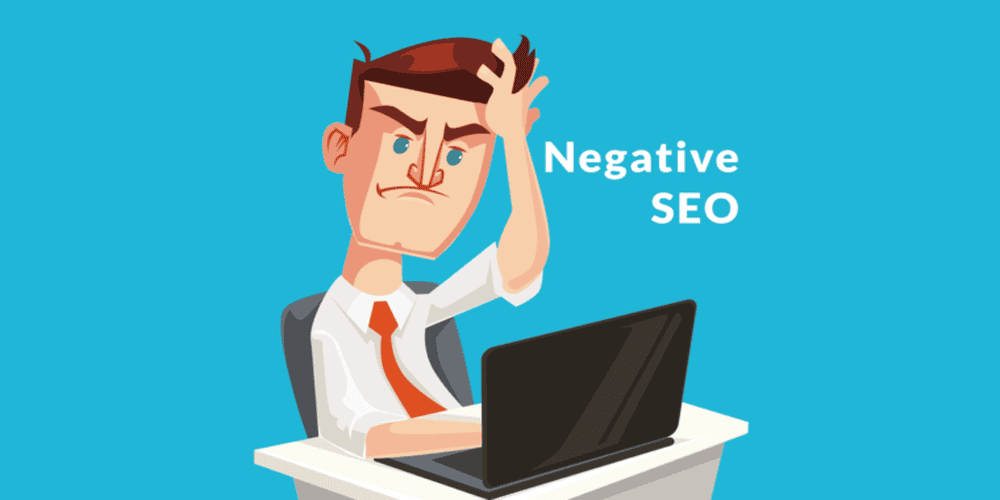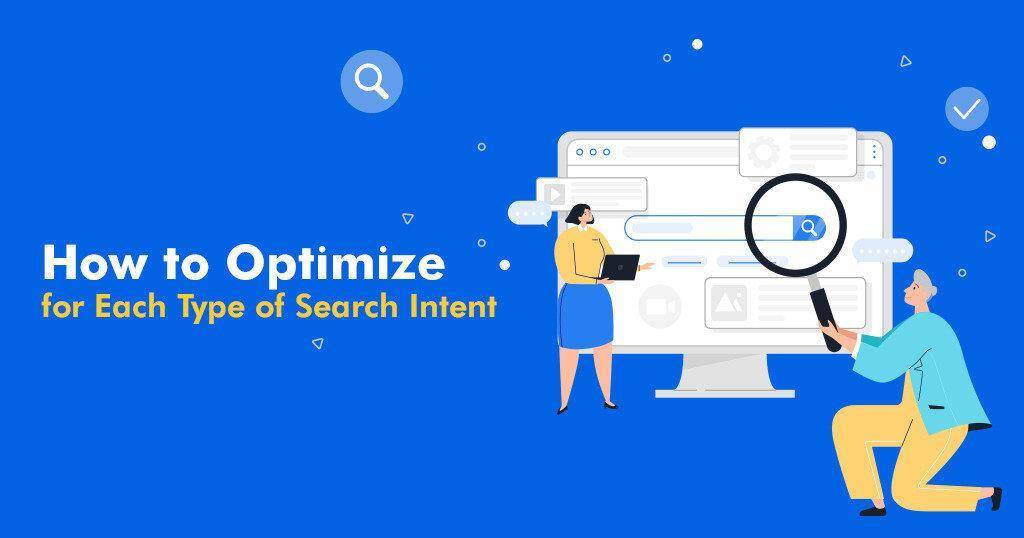Boosting Business Growth: Unleashing the Power of SEO

The importance of a strong online presence cannot be overstated. As consumers increasingly turn to search engines to find products and services, businesses must adapt their strategies to stay relevant and competitive. Search Engine Optimization (SEO) emerges as a crucial tool for businesses looking to grow and thrive in the digital landscape. In this post, we will explore how SEO can significantly impact your business’s growth and provide valuable insights on leveraging its power effectively. Enhancing Online Visibility: One of the primary objectives of SEO is to improve your website’s visibility on search engine results pages (SERPs). By optimizing your website’s structure, content, and keywords, you increase the chances of appearing prominently in relevant search queries. Higher visibility leads to increased organic traffic, ensuring that your target audience finds you more easily and frequently. Generating Organic Traffic: SEO enables businesses to attract high-quality organic traffic, i.e., users actively searching for products or services related to their offerings. Unlike paid advertising, which requires continuous investment, SEO provides sustainable results over the long term. By consistently delivering relevant and valuable content, businesses can establish themselves as trustworthy sources and generate a steady stream of qualified leads. Building Brand Credibility and Trust: Ranking high on search engine results not only increases visibility but also enhances brand credibility and trust. When users see your website consistently appearing at the top, they perceive your business as a reliable authority in your industry. This association fosters trust and confidence, leading to higher conversion rates and customer loyalty. Implementing SEO strategies, such as optimizing user experience and improving website loading speed, further enhances your brand’s reputation. Targeting the Right Audience: SEO allows you to target specific keywords and optimize your website accordingly. This enables you to reach your desired audience more effectively. By conducting thorough keyword research, understanding user intent, and optimizing your content, you can tailor your website to attract visitors who are most likely to convert into customers. This targeted approach maximizes your marketing efforts, ensuring you reach the right people at the right time. Staying Ahead of the Competition: In today’s competitive business landscape, SEO can give you a significant edge over your competitors. By consistently monitoring industry trends, analyzing competitor strategies, and adapting your SEO efforts accordingly, you can stay one step ahead. Understanding your competitors’ weaknesses and capitalizing on them allows you to position your business as the preferred choice for potential customers, leading to increased market share and growth. Cost-Effective Marketing: Compared to traditional advertising methods, SEO provides a cost-effective marketing solution. While initial investments may be required to optimize your website and create quality content, the long-term benefits outweigh the costs. Unlike paid ads that require ongoing payments, SEO generates organic traffic without incurring additional expenses per click or impression. This makes SEO an attractive option, especially for small and medium-sized businesses with limited marketing budgets. As we are now in the digital age, online visibility and credibility plays a pivotal role in business success, SEO emerges as an indispensable tool. By enhancing online visibility, generating organic traffic, building brand credibility, targeting the right audience, and staying ahead of the competition, SEO can propel your business towards sustainable growth. Embrace the power of SEO, adapt to evolving search engine algorithms, and unlock the full potential of your online presence to secure a prosperous future for your business.
The Essential Guide to Local SEO Success

The essential guide to achieving local SEO success, it’s crucial for businesses to optimise their online presence to capture the attention of local customers and drive foot traffic to their physical stores. So, let’s dive in and unlock the secrets to local SEO success! 1. Claim and Optimise Your Google My Business Listing: The first step towards local SEO success is claiming and optimising your Google My Business (GMB) listing. This powerful tool allows you to manage how your business appears in Google’s search results and maps. Make sure to provide accurate information about your business, including contact details, opening hours, and photos. Encourage your customers to leave reviews, as positive reviews can significantly boost your local search rankings. 2. NAP Consistency: Consistency is key in local SEO. Ensure that your business’s name, address, and phone number (NAP) are consistent across all online platforms, including your website, social media profiles, and directory listings. Inaccurate or inconsistent information can confuse search engines and customers, negatively impacting your local SEO efforts. 3. Local Keyword Research: Identifying relevant local keywords is crucial for optimising your website and content. Use tools like Google Keyword Planner or SEMrush to discover keywords that your local audience is searching for. Incorporate these keywords naturally into your website’s content, meta tags, headings, and image alt texts to improve your local search rankings. 4. On-Page Optimisation: On-page optimisation plays a vital role in local SEO success. Optimise your website’s title tags, meta descriptions, and URLs to include local keywords and location-specific information. Create unique and valuable content that caters to the needs and interests of your local audience. Include your NAP information on every page, typically in the footer, to reinforce local relevance. 5. Online Reviews and Reputation Management: Online reviews are not only crucial for attracting potential customers but also influence your local search rankings. Encourage your satisfied customers to leave reviews on platforms like Google, Yelp, or industry-specific directories. Respond to reviews promptly, whether positive or negative, to show that you value customer feedback and are actively engaged in your business’s reputation management. 6. Local Link Building: Building high-quality, local backlinks can significantly boost your local SEO efforts. Seek opportunities to collaborate with local businesses, participate in community events, or sponsor local organizations. Engage in local outreach and encourage relevant websites to link back to your website. Remember, the key is to focus on quality rather than quantity when it comes to backlinks. 7. Mobile-Friendly Website: In today’s mobile-dominated world, having a mobile-friendly website is non-negotiable. Optimise your website for mobile devices to ensure a seamless user experience. Make sure your website loads quickly, is easy to navigate, and has a responsive design. Google considers mobile-friendliness as a ranking factor for local search results, so don’t overlook this aspect. 8. Local Schema Markup: Implementing local schema markup on your website can enhance your visibility in search results. Schema markup helps search engines understand the context and relevance of your content. Include structured data markup, such as LocalBusiness or Organisation, to provide search engines with accurate information about your business, including your NAP, customer reviews, and operating hours. By following these essential guidelines, you’ll be well on your way to achieving local SEO success. Remember, local SEO is an ongoing process that requires regular monitoring, optimization, and adaptation to the ever-changing digital landscape. Embrace the power of local search and unlock your business’s online potential.
Google Topic Authority SEO Ranking System

Google has revealed new information about a ranking system called ‘Topic Authority.’ The system aims to deliver more relevant, expert, and knowledgeable content in Google Search and News for queries on specialised topics. The inception of Topic Authority is an attempt to address a common challenge Google users face when seeking authoritative coverage on specific topics. For instance, users looking for expert commentary on an economic report or local news on a disaster in their area often find a mix of general coverage, potentially obscuring more scholarly work by publications with specific expertise in these areas. The Search Engine Journal have recently reported how the Topic Authority system allows Google to serve more local news results. It helps Google prioritise content from local and regional publications, providing readers with more appropriate coverage. For example, in a flood in a user’s area, the Topic Authority signal will prioritise content from local publications regularly covering topics in that region. Further, an emphasis on Topic Authority means that original reporting from news teams familiar with the location and topic is more likely to surface. Google says local publishers receive increased visibility for news events covered in their area. Publishers with specific expertise can expect the same when their content is relevant to a news story about a specialised field. How Topic Authority Works The Topic Authority system utilises a range of signals to gauge a publication’s level of expertise in specific fields. The primary signals include: (1) Notability for a topic or location: Google’s systems can understand if a publication is relevant to specific topics or areas. (2)In fluence and original reporting: Google’s system considers how other publishers cite a website’s original reporting. (3) Source reputation: Google evaluates a source’s history of high-quality reporting and recommendations from expert sources, such as professional societies. Google advises publishers aiming to succeed with Topic Authority to continue providing excellent coverage on the areas and topics they know well. As Topic Authority influences search results, seeing the changes to the news discovery and distribution dynamic has been interesting. With the emphasis on local and expert coverage, Topic Authority has led to a renewed focus on in-depth reporting and a resurgence of specialist journalism. Topic Authority adds another layer to the strategic mix for SEO professionals. It emphasises the importance of a publication’s expertise, influence, and reputation and aligns with Google’s ongoing efforts to promote quality content. It’s clear that the days of generic, one-sise-fits-all content strategies are numbered, and those who invest in developing authoritative content in their areas of expertise will be well-positioned to reap the benefits of this new ranking system.
The Value of Local SEO to your Business

Choosing to use Local SEO as part of your online marketing strategy could prove to be a wise decision that really pays off, offering a wide range of benefits to business this one simple step can help companies to expand their online sales considerably in short space of time. With more and more people choosing to search for businesses offering the goods and services they require locally online being able to use local SEO to help make sure your website is among the first in the search results is a valuable way to make sure your site gets seen by potential customers. Local SEO to Help Get You Noticed Previously if a search was performed for a local service such as an electrician or cake maker a search engine such as Google would produce results from across the country making it very difficult for smaller business to be seen by the people their goods and services are relevant to. But following some changes to the way Google performs its searches it now possible to produce results that are generated to reflect information that is relevant to you such as your location so finding goods or services within a specific location is really quick and easy. By taking advantage of these changes and using SEO techniques for your website it is now possible to make sure that your business appears high up on any local search no matter how large or small it may be. At Direct Submit we specialise in internet marketing and Local SEO and have helped many local businesses considerably improve their online presence by using Local SEO and other search engine optimisation techniques. By helping to improve the ranking of a business’s website by using SEO techniques that are relevant to the type of company and its location. Many previous clients, both large and small have reported a noticeable growth in their online sales or enquiries following Direct Submit helping them with their online marketing strategy and giving their website the boost it needed. Making sure that your business is seen by your targeted group is an ideal way to ensure that people are aware of what your company does and to generate interest. Recent statistic suggest that more than three quarters of people that use a search engine to find goods or services that are local to them are likely to go to a business within that industry within the next 24 hours. So being among the first in the results really improves your chances of that customer clicking through to your website and being able to gain that advantage be valuable when competing for business online. So if you have been concerned about how successful your website seems to be or just want to try and generate a bit more interest online and reach out to new customers why not get in touch with the team at Direct Submit to find out more? With affordable and flexible packages that are tailor made to your companies requirements and an excellent range of internet marketing services on offer you can be sure they will know exactly what to do to make sure your website gets seen by the people that are most likely to be interested in what you have to offer. No matter if you are looking for a one off consultation, a complete package including ongoing maintenance and performance reviews or a contract for a fixed term at Direct Submit they are always happy to help regardless of your needs or the size of your business and they always aim to offer a service that is always friendly and professional that delivers real results. Established over a decade ago and operating from the North East of the UK, Direct Submit has become one of the leading SEO and Internet Marketing providers in the and around Newcastle. Our client retention rate is exceptional, currently over 80%, which shows our commitment to working with the client to make a project a success. To speak to one of our Internet Marketing Consultants for advice on making your Web Marketing project a success, call us now on 01207 283878, visit the Direct Submit SEO Services website or visit the Direct Submit local SEO Services website. We look forward to your hearing from you soon.
How To Increase Conversions On Landing Pages

Are you noticing that the landing pages on your website are receiving high traffic rates but low conversion rates? If so, we understand that this can be a very frustrating task to handle, as there can be many factors as to why your landing pages aren’t landing you new business. As you want everyone visiting your landing page to turn into a new loyal customer or potential lead. So to ditch the poor conversion rate and increase your landing pages, our experienced team of digital marketing experts here at Direct Submit has curated a list of ways you can improve your conversions on landing pages. 5 Ways To Increase Conversions On Landing Page Optimise the Page For Mobile Devices Mobile devices such as smartphones or tablets are used significantly more in today’s day than they were years ago, as consumers are constantly reaching for their phones to book appointments and find new businesses. So if your landing page is not mobile user friendly there is a strong chance that you are losing out on a significant amount of conversions. Make your mobile pages streamlined, neat, and organised, and include short contact forms that are easy to fill out on a smaller screen. Include Calls To Action Without calls to action, your page visitor may not see the chance to contact you. Every single one of your landing pages should include a clear and direct call to action. This will ensure that your website viewer sees what to do next and knows the steps they need to take to contact you for your product or service. These calls to action include but are not limited to buttons, hyperlinks, etc. Test The Page Frequently Every single month run a test of your landing page, this includes running A/B testing as well as calls to action testing. This ensures that your contact forms, buttons, link, and anything else within the page are working. As when these elements don’t work you run the risk of missing out on conversions and clientele. Get Professional Help From Direct Submit Digital Marketing Agency A big part of a successful business is ensuring that your landing pages are converting properly and are perfectly optimised for search engines. If you want to increase conversions on your landing pages and improve your overall SEO strategy, contact a professional digital marketing agency, such as Direct Submit. With our team of digital marketing experts, we guarantee that all parts of your landing pages and SEO strategy will always be working, and if there is an issue we will troubleshoot as needed, helping you increase your conversions and in turn get you more business! Make The Page Visually Appealing No one wants to view a landing page that is visually unappealing and lackluster, this only drives potential customers and conversions away. That is why it is very important to include multimedia elements, interesting content, visuals, photos, and potentially videos on your landing pages. This can give the page life and help in increasing your conversion rate. In Search Of SEO & Digital Marketing Services? Contact Direct Submit Today! If you are looking for a full-service digital marketing agency to help guide you through the process of creating an effective SEO strategy, contact Direct Submit. Our team of experienced industry experts can help you read, interpret, and analyse your website data to develop a comprehensive SEO strategy for 2023 and beyond. To learn more about our services, visit our website, fill out our online contact form, or give us a call today at 01207 283878.
How to Identify & Recover from a Negative SEO Attack

Negative SEO is a malicious practice that involves using unethical and sometimes illegal tactics to harm a website’s search engine rankings. Negative SEO attacks can take many forms, including link spamming, fake reviews, content scraping, and more. If you suspect that your website has been the victim of a negative SEO attack, there are several steps you can take to identify and recover from it. Check for changes in traffic and rankings: The first step in identifying a negative SEO attack is to look for any sudden drops in traffic or rankings. If you notice a significant decrease in either of these metrics, it could be a sign that your site has been targeted by a negative SEO campaign. Identify & Recover from a Negative SEO Attack Analyse your backlink profile: One of the most common tactics used in negative SEO attacks is to build low-quality or spammy links to a website. You can use tools like Ahrefs or SEMrush to analyse your backlink profile and identify any suspicious links. Monitor your brand mentions: Negative SEO attackers may try to damage your reputation by creating fake reviews or spreading false information about your brand. By monitoring your brand mentions online, you can identify any negative publicity and take action to address it. Check for duplicate content: Another common tactic used in negative SEO attacks is to copy content from a website and publish it elsewhere online. You can use tools like Copyscape to identify any duplicate content and take action to have it removed. Take action to remove or disavow harmful links: If you identify any harmful links pointing to your site, you should take action to remove them or disavow them using Google’s disavow tool. This will help prevent any further damage to your site’s search engine rankings. Improve your website’s security: Negative SEO attackers may try to hack into your website or use other security vulnerabilities to harm your site. By improving your website’s security, you can help prevent these types of attacks from happening in the first place. Stay vigilant: Finally, it’s important to stay vigilant and monitor your website’s traffic, rankings, and backlink profile regularly. By staying alert to any changes or suspicious activity, you can take action quickly and minimise the impact of any negative SEO attacks. File a report with search engines: If you suspect that a competitor or someone else is using negative SEO tactics against your site, you can file a report with search engines such as Google or Bing. These companies have policies in place to prevent negative SEO attacks and will investigate any reports of suspicious activity. Engage with your audience: While negative SEO attacks can damage your reputation and search engine rankings, engaging with your audience can help mitigate the impact. Responding to customer reviews, addressing concerns, and actively participating in social media conversations can help build a positive reputation for your brand. Stay informed: Finally, it’s important to stay up-to-date with the latest trends and tactics in the SEO industry. This will help you identify any new threats or vulnerabilities and take action to protect your site. Joining industry groups and attending conferences can help you stay informed and connected with other professionals in the field. A negative SEO attacks can be devastating for your website’s search engine rankings and online reputation. By taking proactive steps to identify and recover from these attacks, you can minimise the impact and protect your site. It’s important to stay vigilant, stay informed, and engage with your audience to build a positive reputation and maintain your visibility in search engine results pages.
Understanding Search Intent

Modern search algorithms are highly complex, incorporating artificial intelligence[1], the machinations of which are known only to internal employees. But you have control over search intent, which plays a crucial role in helping create content to laser target customers: • What is Search Intent? • Search Intent and Search Engines • Why is Search Intent Important? • Different Types of Search Intent • Search Intent and SEO • Effective Use of Search Intent • Getting Help with Search Intent and SEO You can use search intent to assess where a prospective client is in the conversion funnel[2] based on a query. For instance, they may begin with a general informational query, which turns into a transaction query based on what they find. Knowing the intent can help convert sales. What is Search Intent? At its core, search intent is the understanding behind a specific query by a search engine user, i.e. why a user has decided to use a given term. By understanding the motivation behind a search query, you have the opportunity to direct a user through the funnel to a potential sale. You can capitalise on search intent with Search Engine Optimization to manipulate results. This method is highly effective. Search engines like Google and Bing interpret search intent and display relevant data on the Search Engine Results Page to a user, potentially boosting traffic. Search Intent and Search Engines Search engines use specific algorithms to display relevant results to a user by analysing the intent of the search. Therefore, the results shown in SERPs often reflect each page’s SEO score in relation to the query. For example, if you search “dentists near me”, Google knows you intend to purchase a commercial service based on location. Therefore, local SEO information in relation to your geographic data is used to present the most relevant dental practices. This will be sorted by proximity and rich data such as user review scores[4]. SEO aims to use such data. Why is Search Intent Important? Search intent is necessary concerning online interaction. Linking users and with the most relevant data ensures you help someone find what they are looking for. And search engines award quality design and SEO implementation that helps them accomplish this with higher SERPs rankings. Further, a higher ranking helps build trust from a user perspective. Not least by demonstrating you are an authority in your field[5] that can provide information based on their query. For example, answering questions, providing products and understanding your niche. Different Types of Search Intent When developing a solid SEO and digital marketing strategy, it’s crucial that you understand the different types of search intent. Understanding these can help build a foundation from which you can launch a new campaign or drive general visitors to your site. These are as follows: • Transactional: a search query that indicates someone is looking to purchase a product. • Navigational: information indicating a user wishes to find a specific website. • Informational: usually a question when a user is looking for detailed information. Understanding different types of intent are critical for search engines to relay the most relevant information when you search for something. You can help them by using correct SEO techniques. And users will come to rely on one engine alone based on the quality of results. Search Intent and SEO SEO alone can help drive masses of traffic towards your site based on your content, location information, quality of crawl code and authoritative backlinks. Of course, there’s much more to SEO than this, and it’s challenging to master. Yet search intent needs to become a part of your SEO plan in order to succeed. In particular, effective keyphrases with a high search volume and low competition. The more a phrase is searched for and clicked on, the higher it will appear in SERPs. So identifying intentional search queries around your service becomes very important. Effective Use of Search Intent You can attract more visitors from a marketing perspective with the proper use of search intent and SEO. However, the key is to provide relevant results to connecting queries rather than trying to maximise traffic. In other words, quality over quantity. And this is a crucial part of any marketing strategy because relevant and interested parties will stay on your site longer[7] and are more likely to use your services. These will help boost your SERPs with a lower bounce rate and a higher sales conversion based on behaviour and compelling Call to Action. Getting Help with Search Intent and SEO Understanding SEO and search intent is an essential part of online marketing. Yet it’s a skill that takes time to master and even more to implement correctly. As a business owner or site manager, you may not have the time to study SEO while running a company. Fortunately, digital marketing agencies like Direct Submit employ cutting-edge technology and employees skilled in online marketing strategies. Working with you and your site, DMAs offer a complete understanding of existing and emerging online trends and search technology for your business.
Do Meta Tags Have any Impact on SEO?

The answer is “yes” and “no.” To clarify, yes, title tags do have a direct influence on SEO and can affect your rankings to some extent as a key ranking factor. When it comes to meta descriptions, no, they don’t directly affect SEO, but they can have an indirect influence on your rankings. Regarding that last point about meta descriptions, these little lines of text might seem insignificant to the point where you don’t even bother to optimise them, but the fact is that these can play an integral role in enticing potential visitors to click through to your page. If the meta description looks spammy or poorly written, or if it doesn’t do anything to convince users that the page contains the information they’re looking for, this could keep users away as they look for other more relevant results. If you want to supercharge your SEO, you’ll do well to optimise both your title tags and meta descriptions to serve as accurate and engaging representations for your pages. Otherwise, those top rankings on Google could mean next to nothing. How to Optimise Title Tags Google has occasionally made changes to the formatting for title tags, but today it’s generally agreed that title tags should be around 50 to 60 characters long, with one or two key phrases that users are likely to search. Keep in mind that when it comes to length, Google measures pixel width rather than character count, so that 50 to 60 character limit will vary depending on the dimensions of the text within the title tag. Google and other search engines use Arial, a proportional font, which means that each letter and symbol takes up a different amount of space. So, if you want all of your title tags to show and reach 60 characters for maximum keyword coverage, try to avoid using too many capital letters, items of punctuation, or spaces. If your title tag exceeds the maximum pixel width of 512px, the title will cut off and end with an ellipsis (“…”), which, believe it or not, could discourage visitors from visiting the page. It’s also important to avoid keyword stuffing. Instead, opt for an alternative to your page title that people are likely to enter as a search query. For instance, if your page is a how-to guide titled “How to Optimise SEO for Top Rankings,” a good title tag could look something like: “How Do I Optimise My Website’s SEO for Top Rankings?” At 54 characters and using an inwardly directed phrase that people are more likely to search, you might find that this title tag is ideal for engaging prospects. Even if you properly optimise your titles, Google may automatically choose another title tag. Google will often choose the title of the page itself along with your company or website name, separating the two with a pipe (“|”). With this in mind, you may find that your title is too short, in which case you can separate the main keyword phrase using a “|” followed by your company name, which can increase brand awareness and prevent Google from creating its own title. How to Optimise Meta Descriptions Unlike title tags, meta descriptions won’t have any effect on rankings directly, but they could mean the difference between a click and a skip. Make sure your meta descriptions are well-written and accurate in describing the page, and you may want to encourage users with an appealing offer that finalises their decision to visit the page. Meta descriptions are limited in pixel width to around 920px, which translates to between 150 to 156 characters. Typically, anything at or below 156 characters will show up without cutting off, but capital letters, spacing, and punctuation will also impact length for descriptions. Typically, the ideal meta description will consist of two sentences describing what’s on the page and a call to action. The first sentence should serve as a brief summary of the page topic, followed by a brief statement to encourage the user to click through, such as “learn more here” or an offer like “request a free quote” or “get a free consultation today!” The key is to give users a compelling incentive to visit your website over others appearing in the SERPs. You should try to ensure that all pages have personalised meta descriptions. Otherwise, all people will see is an excerpt from the page that could mean nothing to them and make you appear less professional. Get the Most from Title Tags and Meta Descriptions By optimising these key components, you can effectively create individual “labels” for your pages that place you higher above competitors while increasing click-through rates. You’ll see a clear difference in page performance with winning title tags and meta descriptions in addition to all other SEO measures.
Build Your Business with Search Engine Optimisation

Search engine optimisation, or SEO, is a crucial aspect of building and growing any business in today’s digital age. It involves optimising your website and online presence to rank higher in search engine results and attract more organic traffic. As a reputable and experienced SEO company, we at Direct Submit understand the importance of SEO for businesses and is dedicated to helping clients achieve their goals. Understanding Your Audience and Goals One of the most important elements of an effective SEO strategy is understanding your target audience and what they’re searching for. By researching your audience and identifying their needs and pain points, you can create content and optimise your website to better align with their interests and search queries. Direct Submit’s team of experts is skilled in audience research and goal setting, ensuring that your SEO strategy is tailored to your specific audience. On-Page Optimisation On-page optimisation is the process of optimising individual web pages in order to rank higher in search engine results and earn more relevant traffic. It includes elements such as title tags, meta descriptions, header tags, and content. By focusing on these elements, you can ensure that your website is optimised for both search engines and users. Direct Submit’s team can help you optimise your website’s on-page elements to improve search engine visibility and drive more relevant traffic to your site. Technical SEO Technical SEO refers to the process of optimising the technical aspects of your website to improve its visibility in search engine results. This includes elements such as site structure, mobile optimisation, and load speed. By focusing on these elements, you can ensure that your website is easily crawlable and accessible by search engines. Our team can help identify and fix technical SEO issues on your website, ensuring that it is optimised for both search engines and users. Off-Page Optimisation Off-page optimisation is the process of optimising elements outside of your website that can impact your search engine rankings. This includes link building and local SEO. By building high-quality backlinks and optimising your website for local search, you can improve your search engine visibility and attract more relevant traffic to your site. Our team can help you improve your website’s off-page elements, ensuring that your website is optimised for both search engines and users. Measuring and Analysing Results Measuring and analysing the success of your SEO efforts is crucial to understanding what’s working and what’s not. By tracking key metrics such as search engine rankings, website traffic, and conversions, you can gain insights into how your strategy is performing and make data-driven decisions for ongoing optimisation. Direct Submit’s team can help you analyse your results and make data-driven decisions for ongoing optimisation, ensuring that your SEO strategy is always achieving the best results. Keeping Up with Algorithm Updates Search engine algorithms are constantly changing, and it’s important to stay up to date on the latest updates in order to ensure that your SEO efforts are still effective. We are committed to staying ahead of the curve and adjusting our strategies, accordingly, ensuring that our clients are always ahead of the game. By keeping up with algorithm updates, you can ensure that your website is always optimised for the latest search engine requirements, and that your business stays ahead of the competition. SEO, or search engine optimisation, is a vital component of building a successful business in today’s digital landscape. It involves optimising your website and online presence to rank higher in search engine results, which in turn can lead to increased visibility, website traffic, and ultimately, conversions and sales. At Direct Submit, we understand the importance of SEO for businesses and have a team of experts who can help develop and execute a comprehensive strategy to improve your search engine visibility. Our approach starts with understanding your target audience and setting clear goals, which inform every aspect of our optimisation efforts.
Inbound Links Can Aid Your Digital Marketing Project

Inbound links, also known as backlinks, are a crucial element of digital marketing. They refer to links from other websites that lead to your website. These links are valuable because they help increase your website’s visibility, drive traffic to your website, and improve your website’s search engine ranking. In this post, we’ll discuss how inbound links can aid your digital marketing project. Increased Visibility Inbound links help increase your website’s visibility by exposing your website to a broader audience. When a website links to your website, its visitors can follow the link and land on your website, increasing your website’s traffic. Additionally, when more websites link to your website, search engines like Google view your website as authoritative and trustworthy, leading to better search engine rankings. Drive Traffic Inbound links drive traffic to your website. As we mentioned earlier, when other websites link to your website, their visitors can click on the link and land on your website. This traffic is more likely to be interested in your content since they are coming from a website that has already shown an interest in your niche or industry. This targeted traffic can lead to higher conversion rates and more significant revenue for your business. Improved Search Engine Ranking Inbound links play a vital role in search engine optimisation (SEO). Search engines like Google use inbound links as a signal of a website’s authority and relevance. When other websites link to your website, they are essentially vouching for the quality of your content. This, in turn, helps improve your website’s search engine ranking, making it more likely that your website will appear at the top of search engine results pages (SERPs). Better Domain Authority Domain authority is a metric that indicates the strength and authority of a website. Inbound links are a significant factor in determining domain authority. When more websites link to your website, your domain authority improves, which can lead to more significant organic traffic and better search engine rankings. Establishes Credibility and Authority Inbound links from reputable websites help establish your website’s credibility and authority. When other high-quality websites link to your website, it signals to your audience that your website is trustworthy and provides valuable content. This can increase the likelihood of visitors returning to your website and becoming loyal customers. Increases Brand Awareness Inbound links can also help increase brand awareness. When other websites link to your website, they are essentially promoting your brand and exposing it to their audience. This can lead to more people becoming aware of your brand and potentially becoming customers. Additionally, when people see your brand mentioned on multiple websites, it can increase brand recognition and reinforce your brand identity. Builds Relationships Actively seeking inbound links can also help build relationships with other websites and businesses in your industry. By reaching out to other websites and requesting a link, you can start a conversation and potentially establish a beneficial partnership. This can lead to other opportunities for collaboration and cross-promotion, which can further increase your website’s visibility and traffic. Improves User Experience Inbound links can also improve the user experience on your website. When visitors follow a link to your website, they may discover new content or resources that they find valuable. This can keep visitors engaged and on your website longer, improving metrics like bounce rate and time on page. Additionally, providing links to external resources on your website can enhance the user experience by providing additional information and resources. Inbound links are a crucial aspect of digital marketing. They can help increase visibility, drive traffic, improve search engine rankings, establish credibility and authority, increase brand awareness, build relationships, and improve the user experience. By incorporating inbound links into your digital marketing strategy, you can improve the overall success of your website and business.
